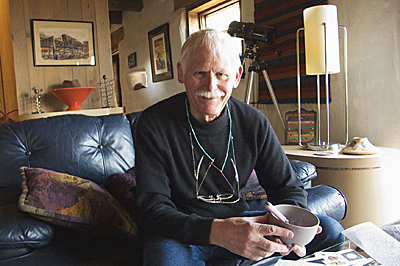Class Notes
I’m truly fortunate to have known William McGrath for over 25 years. As an undergraduate working in the art library, I first remember him dashing in to see Stephanie Frontz, his wife and the University’s art librarian. Shortly thereafter, a close friend, Nicoletta Gullace ’83, recommended I take his class.
 TEACHER: William McGrath, a professor emeritus of history, taught in the department for 27 years. (Photo: The Department of History)
TEACHER: William McGrath, a professor emeritus of history, taught in the department for 27 years. (Photo: The Department of History)We became Professor McGrath “groupies,” sitting in the front row in rapt attention. His classes in cultural and intellectual history were carefully woven “kilims,” as aesthetically wonderful as those he collected, with strands of literature, art, music, and psychology embedded in historical narrative.
Now an associate professor of history at the University of New Hampshire, Nicoletta writes, “I remember the anticipation with which we signed up for Bill’s courses because we knew that they would take us into a whole new world. Few teachers have the talent to inspire students to make their way through Kant, Heidegger, Nietzsche, Freud, and Woolf without protest; Bill did this and more. Not only did his students come to class eager and prepared, we also came holding our texts and knowing that he would illuminate the incomprehensible and that we would leave understanding in new ways what we had read the night before.”
Following a Fulbright fellowship year in Vienna, Professor McGrath completed his doctorate in 1965 at the University of California at Berkeley. He taught at the University of Chicago before moving to Rochester in 1971, where he taught until 1998. His influential books—Dionysian Art and Populist Politics in Austria (1975) and Freud’s Discover of Psychoanalysis: The Politics of Hysteria (1986)—are highly regarded.
In recent years, he was working on a new book titled German Freedom and the Greek Idea: From Goethe to Mann. He died Nov. 30, 2008.
During his 27 years at the University, he was truly a gifted and empathetic teacher of modern European thought and ancient history. In thinking about him, Nicoletta and I both feel that he always had a word of encouragement for us, and when we talked with him we always felt the security and reassurance that came from his warmth, wisdom, and deep-down sanity. We know he will be truly missed by many.
—Kari Horowicz ’84
Horowicz is the art and photography librarian at Rochester Institute of Technology.
